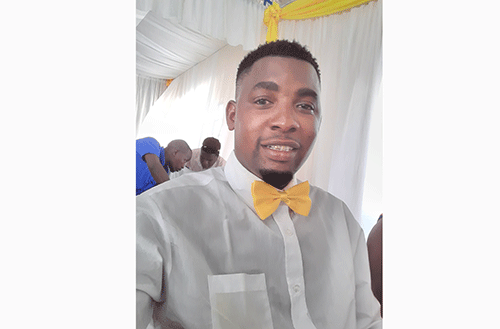Reconciliation is defined by Oxford as “The process of making one’s view or belief compatible with another.” Putting national reconciliation into context, this is the term used for the establishment of national unity in countries faced with political and civil problems.
These problems can be war, tribalism, racism, xenophobia and so forth. Therefore, reconciliation is viewed as a process of healing relationships that requires public truth-sharing, apology and commemoration that acknowledge and redress past harms. It is a long-term process that requires patience and tolerance.
After WWII, many countries established truth and reconciliation commissions (TRCs) that were aimed at investigating and performing an inquiry on the atrocities that were committed by both sides of the war. In the same vein, many African countries such as Liberia, Congo, South Africa and Rwanda joined the bandwagon to deal with their civil conflict aftermath.
Despite the fact that we have seen this in other African countries, and national reconciliation being one of the principles on which our constitution is built on, it’s unfortunate that Namibia has not taken that step to set up a similar tangible commission or policy that speaks directly to this notion!
Groop (2012) notes, “the work for reconciliation, peace and unity was considered so crucial that it was enshrined in the preamble of the new constitution as a declaration stating that “we the people of Namibia […] will strive to achieve national reconciliation and to foster peace, unity and a common loyalty to a single state”. The issue of reconciliation, however, did not progress much further than this.”
Groop adds by saying, “there were efforts made in the first session of the Namibian Parliament, where Moses Katjiuongua proposed the establishment of a Judicial Commission of Inquiry, but his motion led to a split debate and was eventually defeated”!
I think it’s high time we stop shying away from the ghost which continues to haunt us, whether we like it or not, and begin to have open dialogues and engagements like this one on the matter.
In addition, it’s a fact that Namibia has her own unique political and civil challenges that need different approaches to solve them, starting from the legacy of colonialism, apartheid and tribal tensions. I also strongly believe we need to exercise prudence by studying how other parts of the world have dealt with their issues, which can give us a broad scope on how to deal with ours.
For example, we could study the South African TRC’s successes and failures. Many critics have said it was successful in terms of giving surface healing and answers to closure-seeking victims, but on the other hand it failed to bring all the perpetrators to book!
Nevertheless, in Canada, they also had a similar inquiry between the indigenous and non-indigenous people. Here are some of the principles that stood out (Ricochet, 2012), which I think can also be helpful in the Namibian context;
*Reconciliation requires constructive action on addressing the ongoing legacies of colonialism that have had destructive impacts on Aboriginal peoples’ education, cultures and languages, health, child welfare, administration of justice, and economic opportunities and prosperity.
*Reconciliation requires political will, joint leadership, trust building, accountability and transparency, as well as a substantial investment of resources.
*Reconciliation requires sustained public education and dialogue, including youth engagement, about the history and legacy of residential schools, Treaties and Aboriginal rights, as well as the historical and contemporary contributions of Aboriginal people to Namibian society.
WAY FOWARD
One of the true advocates and scholars on freedom, justice and equality, Dr Cornel West has always began his lectures by saying “In order for any society to have truth and justice, we need to allow suffering to speak on every level”.
This means for us to fully grasp and understand how bad the situation really is in our society, everyone should be accorded the right and platform to voice their deep emotions on the occurrences of the past. Otherwise, it will only be considered vanity for us to only have a one-sided narrative of what really occurred! Marginalising and locking out the true victims from the dialogue will only aid the building up of anger and rage!
Mending these gaps won’t be achieved overnight, but tireless efforts on the eight points below can crucially help us achieve reconciliation:
*We need to openly start discussing and admitting accountability to these issues, as this will be one of the pathways to our national healing and reconciliation.
*The government should set up a commission that will be strongly rooted on truth, justice and healing principles.
*We need to do away with tribal politics, and create atmospheres that will encourage diversified representation.
*Do away with and condemn tribal stereotyping and hate speech on every level.
*Cultivate tolerance in our children at a tender age.
*Have fortitude to condemn wrongdoing, even if it’s done by people close to us.
* We need to exercise tolerance and solidarity with our fellow tribes’ quest for justice on the past atrocities caused to our people.
* We need to all hold hands and support government’s efforts on nation-building and prosperity, through the One Namibia, One Nation campaign.
Derrick Masangu is an independent blogger.


